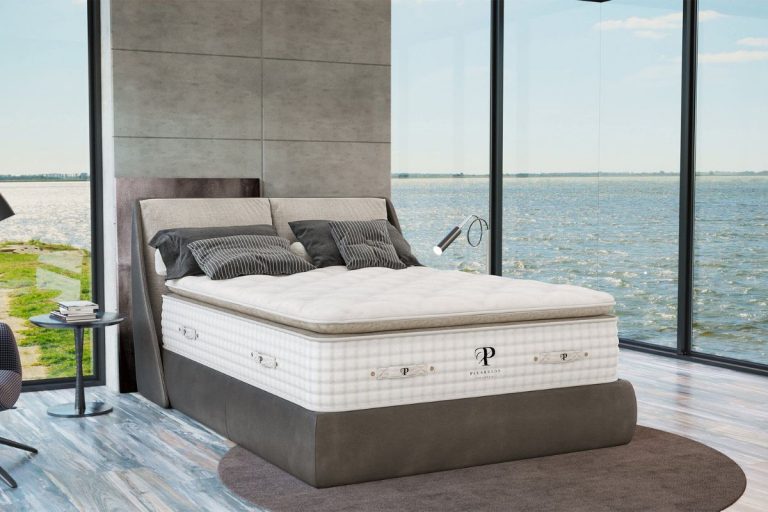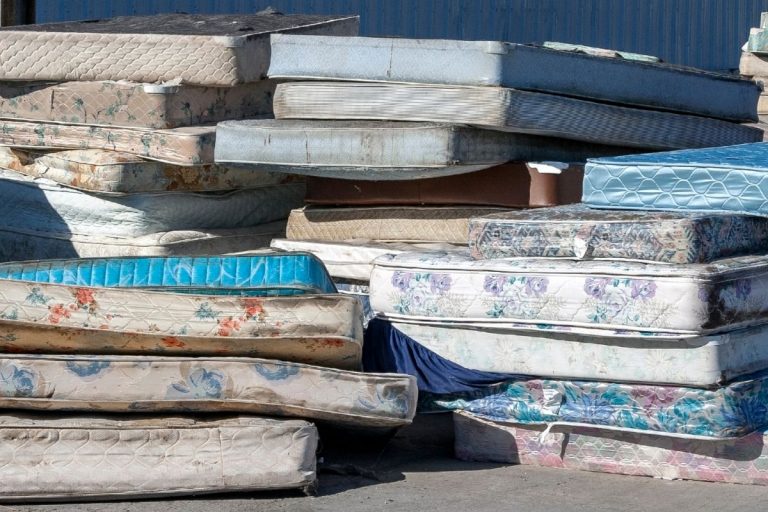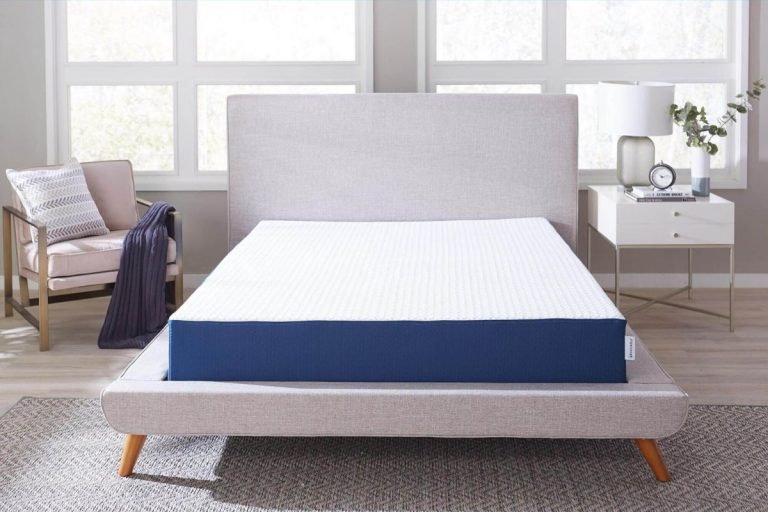Public discussion about sleep-apnea caused death has almost been non-existent for a long time. People are also rarely aware of sleep apnea as a condition. However, recent cases of people dying from sleep apnea (like major celebrities like Carrie Fisher) have stirred up what we know about this condition.
So, can you die from sleep apnea?
Well, the short answer is: yes, you can die from sleep apnea. But, things are more complicated than that. In the following paragraphs, we’re going to take a look at how exactly can sleep apnea lead to death.
Sleep Apnea Overview
- Sleep apnea is a disorder associated with breathing difficulties, pauses in breathing, or complete cessation of breathing during sleep.
- Sleep apnea is associated with cardiovascular disease, stroke, heart failure, arrhythmia, sleep deprivation, insomnia, mood swings, depression, fatigue, restlessness, snoring, etc.
- Sleep apnea affects people of all ages but is most common in men and people over the age of 40.
- Sleep apnea is likely to occur in overweight and obese people, pre-menopause and post-menopause women, middle-aged and older men, people with a family history of sleep apnea, people who suffer from nocturnal nasal congestion, people who have rhinitis, etc.
- Sleep apnea effects manifest in the form of excessive daytime sleepiness, restless sleep, abrupt awakenings, sleep deprivation, insomnia, chest pain during sleep, shortness of breath, coughing, gasping upon waking up, etc.
- Sleep apnea causes increased heart rate, which further increases the risk of heart failure, stroke, and death due to cardiovascular disease.
- Sleep apnea can be treated. The treatment options usually include CPAP therapy, oral appliances/mouthpieces, behavioral therapy that requires thorough lifestyle changes, positional therapy (sleep position, for example), medication, and surgery.
- We highly suggest you do a sleep apnea test at home (Less expensive and fast results)
How Sleep Apnea Results In Death?
Sleep apnea is a serious disorder that can cause numerous health complications and life-threatening conditions, especially if left untreated. Here is how sleep apnea can cause death if left untreated;
Increased Risk Of Heart Attack
Researches estimate sleep apnea if left untreated can significantly increase the risk of cardiovascular disease and death by heart attack by 5 times. The reason for this lies in several facts; because of shortness of breath and poor breathing quality/efforts, there isn’t enough oxygen directed to the heart. Furthermore, because of abrupt awakening and apnea episodes that can happen hundreds of times during sleep, people with sleep apnea experience sleep deprivation and insomnia. And these are all the things that make you heart sick and unable to function properly.
Studies show that 47% to 83% people experience sleep disorder and have a cardiovascular disease because of sleep apnea. Moreover, 35% of people with sleep disorders experience high blood pressure, 53% of people experienced heart failure, heart rhythm oscillations, and stroke. This clearly shows that poor sleep quality, sleep deprivation and insomnia directly affect the health of the heart. Here’s a quick overview of how that exactly happens;
- Cessation of breathing due to sleep apnea results in low oxygen levels. This results in stress hormones compensating, releasing more adrenaline, and causing high blood pressure.
- Sleep apnea causes unhealthy stimuli to the heart and circulation that eventually progress into cardiovascular diseases.
- Heart failure causes the body to retain sodium and water, which is usually the case in sleep apnea. This excess sodium and water can enter the lungs, furthering the abrupt awakenings and shortness of breath in sleep apnea.
- Further studies show that sleep deprivation caused by sleep apnea increases the risk of heart failure, stroke, and coronary heart disease up to 3 times.
Read More: Average Sleeping Heart Rate by Age
Increased Risk Of High Blood Pressure And Type 2 Diabetes
Studies show that the association between sleep apnea and high blood pressure or hypertension is very clear. The association between these two contribute to the changes in the body that are a risk factor for mortality.
However, these studies also show that high blood pressure is a so-called modifiable risk factor for high blood pressure in sleep apnea. The reason for that lies in the fact that it can be prevented through proper treatment.
The treatment options usually include CPAP therapy and significant weight loss. However, if left untreated, sleep apnea will not only progress into high blood pressure, but it will be the direct cause of cardiovascular complications and death due to heart failure or attack.
Other studies show that type 2 diabetes is prevalent in sleep apnea patients. The results of these studies imply that sleep apnea is directly associated with excessive weight and higher Body Mass Index, both of which are known to be associated with type 2 diabetes. If left untreated, the effect of sleep apnea on weight gain, physical weakness, and poor diet can directly result in type 2 diabetes, which has a rather high mortality rate.
The risk of death in type 2 diabetics younger than 55 is up to 40% higher than in older ones. Moreover, in the US alone this percentage amounts to 40,000 deaths among patients with type 2 diabetes.
Increased Risk Of Deadly Accidents
Studies show that there is an increased risk of deadly motor vehicle and working accidents associated with sleep apnea. Even though these accidents are usually anecdotally reported, the past few decades we’ve seen clear evidence that sleep apnea affects people’s poor performance, attention, and reaction time, which in some cases led to a deadly outcome.
The aforementioned studies have also shown the accident rate in sleep apnea-related cases; there are 13 sleep-apnea related deaths per million km in cases of untreated patients.
The factors that determine the accident rate in sleep apnea-related cases usually relate to sleepiness, alcohol consumption, poor judge driving performance, and in some cases, heart-related issues.
Sleep apnea causes excessive daytime sleepiness, fatigue, attention and concentration issues, frequent headaches, and poor performance. All of these sleep apnea effects appear during the day, when we’re more likely to work, drive, operate heavy machinery, etc. Other risk factors contribute to sleep apnea having such effects on our ability to function during the day, for example;
- Driving during mid-afternoon or night hours,
- Driving during the day when you’re sleep-deprived,
- Driving on highways or major roads,
- Being of male sex (men experience more sleep apnea-related effects and accidents than women),
- Consumption of drugs and alcohol,
- Shift work,
- Narcolepsy, etc.
General Risk Of Premature Death
A study that conducted an 18-year mortality follow-up regarding sleep-disorder breathing showed that the mortality rate is significantly increased with sleep apnea or sleep-disorder breathing severity. The findings took into consideration factors like age, sex, Body Mass Index, as well as the apnea-hypopnea index. The collected data showed that sleep apnea or sleep-disorder breathing deaths usually include the following specific categories;
- Cardiovascular disease, stroke, acute ischemic heart disease, heart failure, sudden cardiac arrest, cardiomyopathy, pulmonary hypertension, etc.
- Fatal events, including motor vehicle and motorcycle accidents, falls, injuries, and suicide.
- Cancer, including lung cancer, bladder, breast and brain cancer as well as leukemia.
The collected data showed that the variables created for this study included alcohol use, cigarette smoking, history of cardiovascular disease, stroke, diabetes, hypertension, self-rated general health as well as CPAP therapy for sleep apnea or sleep-disorder breathing.
This study surely provides an insight into the general risks of premature death in cases of untreated or seriously developed sleep apnea. The findings are statistically significant and imply how important it is to have sleep apnea diagnosed and treated on time.
How Can You Prevent Death By Sleep Apnea?
CPAP Therapy
CPAP (continuous positive airway pressure) therapy is currently the best treatment for sleep apnea. CPAP machines are responsible to ensure proper breathing during the night in sleep apnea patients. In some cases, CPAP machines, or similar devices, simply ensure there is at least proper breathing effort since these machines don’t breathe for you. Either way, machines like CPAP, BiPAP, or APAP are recommended for obstructive and central sleep apnea. However, there can be cases of CPAP intolerance in some patients, but luckily, there are other treatment options as well.
Oral Appliances
Oral appliances or mouthpieces are recommended as an effective treatment option of sleep apnea. These devices are worn inside the mouth and can act as jaw-position altering devices or tongue-suction devices. Either way, they ensure that the airway is open and that you’re breathing properly.
Oral appliances are FDA-cleared and recommended by the American Academy of Sleep Medicine. These devices are obtained according to medical recommendations and consultation with a dentist.
A consultation with a dentist is essential because they need to determine whether your teeth are healthy and strong enough to handle mouthpieces.
Lifestyle And Dietary Changes
Because sleep apnea is in direct association with excessive weight and obesity, it is essential for sleep apnea patients to conduct some lifestyle and dietary changes. Weight loss should be a priority; it can help improve breathing, lower the fat layers in the body, as well as in the airway regions, and can generally contribute to a better quality of life and sleep.
Moreover, studies have shown that the best dietary change for sleep apnea patients lies in Mediterranean cuisine. This cuisine is considered to be the healthiest in the world. It is abundant in healthy fats that help regulate metabolism and lower the risk of heart diseases.
Other Treatment Options
Other treatment options include;
- Oral pressure therapy – this is an alternative to CPAP therapy. It is a vacuum pressure therapy that widens the nasal airway. It lowers the risk of nocturnal nasal congestion.
- Positional therapy – this is a therapy that includes a change in sleeping position for patients with sleep apnea. The therapy usually includes sleeping on the stomach, contrary to the popular belief that patients should sleep on the back. However, there is more to this therapy which is applied differently to each patient, based on their needs.
- Oral surgery – if no other treatment options work, doctors usually recommend oral surgery. This surgery can clear the breathing passages and ensure that sleep apnea never returns. Some of the oral surgeries that can be conducted include the removal of enlarged tissues in the upper airway, surgical removal of excess tissue in the soft palate or surgical adjustment of the jaw and chin (both being moved a bit forward).
Final Words
It can be scary to know that sleep apnea can kill you. But, luckily, it can be treated and the worst-case scenario can be avoided. The aforementioned way of sleep apnea causing death are only applicable in cases where the condition is untreated.
Therefore, it is essential to talk to your doctor, get a proper diagnosis and treatment recommendation. Lifestyle changes are also necessary, especially when it comes to weight loss and healthy nutrition. For more information about sleep apnea and its role in our health and life, make sure to talk to a medical professional or a doctor.





